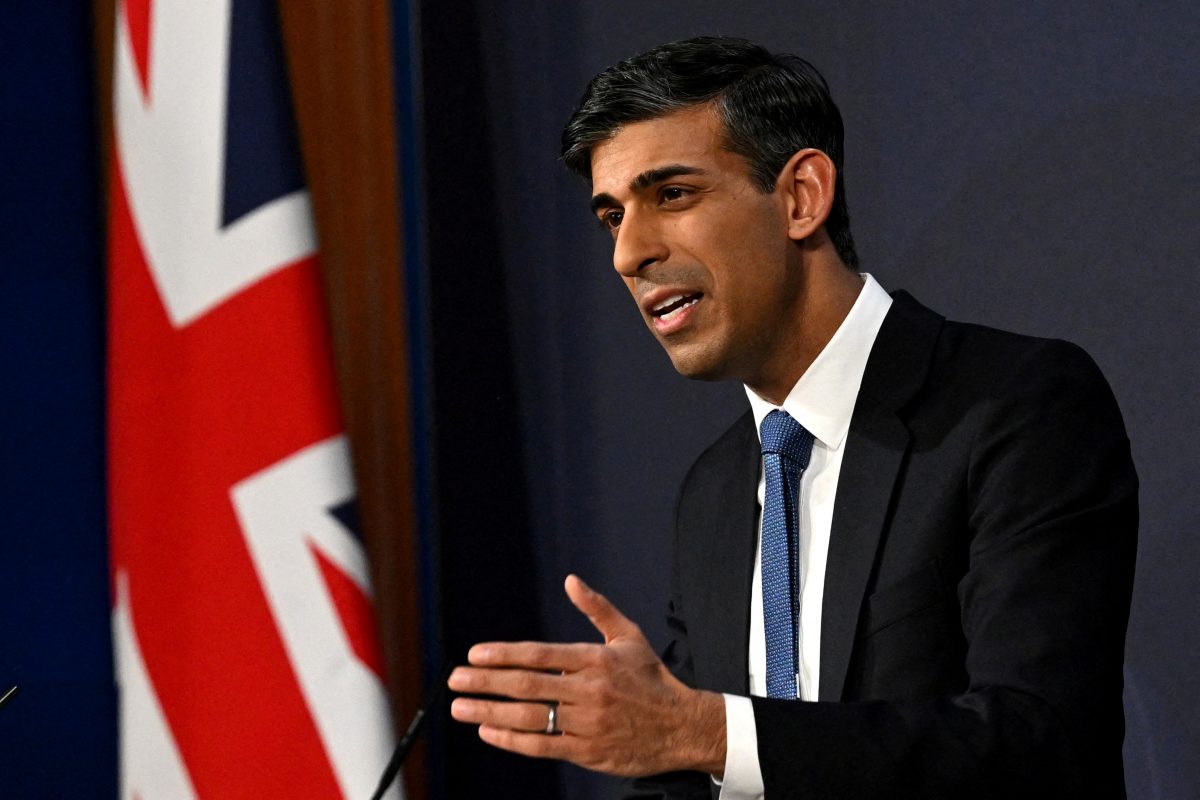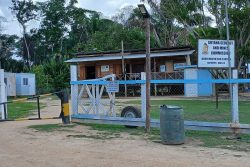LONDON, (Reuters) – British Prime Minister Rishi Sunak said the government would appeal to the UK’s top court after its plan to deport asylum seekers to Rwanda was deemed unlawful in a major blow to his pledge to stop asylum seekers arriving in small boats.
Under an initial 140 million pound ($177 million) deal struck last year, Britain planned to send tens of thousands of asylum seekers who arrive on its shores a distance of more than 4,000 miles (6,400 km) to the East African country.
The government argues the plan would smash the business model of human traffickers but critics say the policy is inhumane and will not work. On Thursday the Court of Appeal concluded by a majority of two to one that Rwanda could not be treated as a safe third country.
“While I respect the court I fundamentally disagree with their conclusions,” Sunak said in a statement, adding the government would seek to overturn the decision in the UK Supreme Court.
“The policy of this government is very simple, it is this country – and your government – who should decide who comes here, not criminal gangs,” he added. “And I will do whatever is necessary to make that happen.”
The ruling comes as a huge blow for Sunak, grappling with high inflation, rising interest rates and declining public support amid growing pressure from his party and the public to tackle rising numbers of asylum seekers costing 3 billion pounds a year to accommodate.
Sunak has made “stop the boats” one of his five top priorities, and hopes a fall in arrivals might help his Conservative Party, trailing by about 20 points in opinion polls, pull off an unexpected win at the next national election.
The first planned Rwanda deportation flight was blocked a year ago in a last-minute ruling by the European Court of Human Rights (ECHR), which imposed an injunction preventing any deportations until the conclusion of legal action in Britain.
In December, the High Court ruled the policy was lawful, but that decision was challenged by asylum seekers from several countries such as Syria, Iraq and Iran, along with human rights organisations.
‘INHUMANE TREATMENT’
The appeal court ruled deficiencies in Rwanda’s asylum system meant there were substantial grounds for believing that those sent there would be returned to their home nations where they face “persecution or other inhumane treatment”.
“The result is that the High Court’s decision that Rwanda was a safe third country is reversed and that unless and until the deficiencies in its asylum processes are corrected removal of asylum-seekers to Rwanda will be unlawful,” Lord Chief Justice Ian Burnett said.
Burnett himself disagreed with the other two judges, a fact highlighted by Sunak. However, even if the government were to be successful with an appeal to the UK’s top court, deportation flights are very unlikely to begin this year.
‘UNWORKABLE, UNETHICAL’
Political opponents said the government had no plan on how to deal with the migrant issue, saying Sunak should now scrap the policy which they dismissed as a gimmick.
“The Rwanda scheme is unworkable, unethical and extortionate,” said Yvette Cooper, the home affairs spokesperson for the main opposition Labour Party.
Sending each asylum seeker to Rwanda would cost on average 169,000 pounds ($213,450), the government said this week.
Opponents also say the government’s policies were about driving political support and would not solve underlying issues.
They argue there are currently no legal routes for most asylum seekers fleeing war or persecution to apply for refugee status to enter Britain, so many see the dangerous small boat crossings as their only option.
Last year, a record 45,755 people came to Britain in small boats across the Channel, mainly from France. More than 11,000 have arrived this year, a rate similar to the first half of 2022.
Meanwhile, the Rwandan government said that while the matter was one for the British courts, it took exception to the judges’ conclusions.
“Rwanda is one of the safest countries in the world and we have been recognised by the UNHCR and other international institutions for our exemplary treatment of refugees,” said government spokesperson Yolande Makolo.









